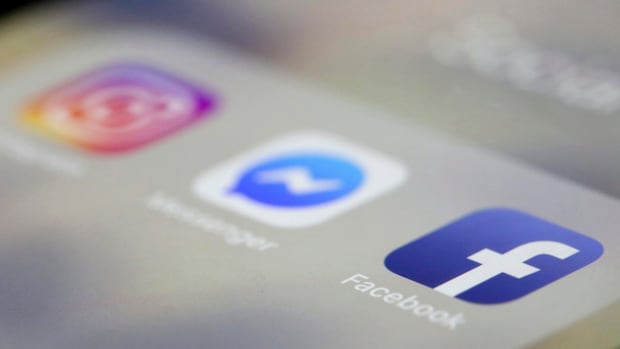Meta is pushing back on claims from social media users who say they’ve been forced to follow Facebook and Instagram accounts belonging to U.S. President Donald Trump, his wife Melania Trump and Vice-President J.D. Vance.
The allegations gained steam on Tuesday, a day after Trump took office, with some users saying that the platforms, both owned by Meta, made them followers of those accounts without permission.
Pop singer Gracie Abrams said on Instagram she had to unfollow the official pages of Trump and Vance three times because the platform “kept automatically following” them.
“How curious! Had to block them in order to make sure I am nowhere near that. Sharing in case this is happening to your accounts as well,” she wrote. Others claimed that Meta was censoring searches for terms like “democrats” on its platforms by labelling them as sensitive content.
Meta referred CBC News to social media posts by its communications director, Andy Stone.
Stone, writing on Meta’s Threads platform, said the confusion was due to the previous administration giving control of the official @POTUS account to Trump’s team.
Anyone who had been following @POTUS during the Biden administration, for example, would still be a follower after control of the account had been handed over to the new administration.
“People were not made to automatically follow any of the official Facebook or Instagram accounts for the President, Vice President or First Lady,” Stone wrote.
Stone did not directly address claims that some users had to repeatedly unfollow those accounts, but said it “may take some time for follow and unfollow requests to go through as these accounts change hands.”
Katie Harbath, former director of public policy for global elections at Facebook, wrote on Threads that a similar transition happened between Barack Obama and Trump, and again between Trump and Joe Biden in 2017.
“The old [Facebook pages] go to an archived account and the followers remain, but the feed is wiped clean. Most platforms handle it this way,” she said.
There’s a growing perception that Big Tech is getting closer to the Trump administration, says Brett Caraway, an associate professor at the University of Toronto, and that a tension already felt by part of the American public was exacerbated by the presence of Meta CEO Mark Zuckerberg and other tech executives at the Trump’s inauguration.
Front Burner24:34Donald Trump’s billionaire administration
“With all of the concerns about the possibility of authoritarianism visiting the United States, one of the first things that typically happens in that sort of scenario is that an authoritarian government would seize control of the means of communication,” Caraway said.
“I think that the general sense of distrust and animosity that is being directed towards the tech industry is pervasive. And it’s not just on the left. I think it’s also on the right,” he said.
A Gallup poll from July 2024 showed that Americans across the political spectrum were similarly distrustful of large technology companies; with 32 per cent of Democrats saying they had a great deal or quite a lot of confidence in them, followed by 28 per cent of Independents and 20 per cent of Republicans.
The poll was conducted by phone with a random sample of 1,005 adults and a margin of error of +4 percentage points at 95 per cent confidence level.
Young people in particular have lived through a spectrum of controversies involving social media companies, like the Cambridge Analytica scandal with Facebook and, most recently, the potential TikTok ban in the U.S, says Cyrus Beschloss, a co-founder of Generation Lab in Washington, which studies young people and their relationship to government, media and technology.
“I think that they have this sort of latent inherent distrust floating in the ether around them,” said Beschloss.
“My big question is, does it matter? Young people are still going to [use] whatever social media platform they use.”


